Poetic faculty is that gift of nature, which only a few people are endowed with. This is a fire, which can destroy as well as prove a source of life; it can harm as well as be useful. Whenever we desire, it can serve as an instrument of achieving our objectives. Poetry is eminently capable of awakening nations from the slumber as well as inspiring them with a spirit of revolution. It serves as a spur to the spirit of courage and Valor. It can help to develop the consciousness of self-examination and moral reform. On the contrary poetry can equally be made an instrument of nourishing immorality and instilling the spirit of idleness and lethargy in society, and becomes the cause of misguiding the society in its thoughts and ideas. From this point of view, evidently, one will come across poets exhibiting different attitudes toward life. In view of the remarks made above I would like to divide the poets into the following different categories.
1. Literary Poets: The poets belonging to this category possess a remarkable command of language and expression. Such poets possess a remarkable talent in creating in verse masterpieces of spiritual and emotional experiences, painting the beauties of nature, writing narrative poems, praising the beauty of their mistresses, extolling their benefactors, elevating the men of saintly character and singing the praises of the rulers. Such poets are masters of poetic beauty, style, and imagination, possessing high lyrical quality. But being circumscribed in their alms and objectives, and confining themselves to merely subjective themes they reap no benefit more than the satisfaction of their personal emotions and sentiments, or the plaudits they get from the society for the imaginative quality and style of their poetry.
2. Didactic Poets: This is that category of the poets of remarkable poetic talent, who meditate through their poetry about the themes of the mysteries of mysticism, the intricate problems of philosophy and higher human values, and embellish their thoughts by giving them a shape and form in their poetic expression. Sometime they relate these thoughts in' the narrative manner of 'Mathanvi' of Maulana Rome, and sometime in the manner of lyrical poetry, quatrains and other poetical forms of Hafiz Sherazi and Sheikh Saadi.
3. National Poets: Because of their love for their country and the nation, they devote themselves to the study of the political moral and economic condition of their people. They try to develop in themselves a comprehensive knowledge of their virtues and weaknesses, their difficulties and possibilities. They try to plumb the causes and their resultant practical forms. They find themselves deeply interested in their past and present. In the light of their study and analysis of the nation's life, they present them with a well-defined course of life. In addition, the path and character that they determine for the achievement of that objective, they project it in their different forms.
Keeping in view all these different classes of poets, if we analyze the poetry of Shah Latif, we shall discover that he combines in his work the qualities of the last two classes of the poets. He was a reformer as well as a national poet, and since these two elements stand out in his poetry, books can be separately written on these aspects. However, leaving the mystical and philosophical aspects of his' poetry for the study of those who understand mysticism and philosophy, I would make an effort to project and highlight various aspects of his poetry in the light of my limited knowledge.
After all the information which has been presented in the last two chapters, and after a deep study and analysis of the poetry of Shah Latif, no doubt is left in my mind that he is the national poet of Sindh, and he holds a specific imaginative approach toward Sindh. (This will be discussed at length in the Fourth Chapter).
Exactly in the same manner, he held a specific imaginative approach toward the Sindhi nation, (the detail of which will also be discussed in the subsequent chapters). It would be quite adequate to say here that the particular opinion he had formed about the country and the nation, to a very large extent he had closely studied after widely travelling through the country. He associated freely with the people, and had learned a great deal about their behavior and habits. With great interest, he had heard the tales popular among the people. He had, analyzed their political, social and economic conditions. He had shared their pains and sufferings, had a thorough look at their virtues and weaknesses, acquired a deep understanding of their defects and failures, and had meditated over their past, present and future. In short he had acquired a comprehensive knowledge and developed a consciousness about the conditions prevailing in Sindh during this period. Thus in the light of the states of their knowledge and consciousness, when we study his poetry, we would be able to observe the following elements in his poetry from the national viewpoint.
1. Patriotism: The qualities, which Shah Latif observed among the people of Sindh, the pre-eminent among them was their patriotism. He saw with what love people used to hear the verse tales of Doodo Soomro sung by the professional singers. This tale inspired the people to lay down their lives fighting bravely in defense of their country. At the same time in marriage parties and other such gatherings he often observed women and professional musicians and singers singing about Marui’s love' of her people and her patriotism, and he discovered among the people of Sindh a deep sentimental attachment with their village and their region. He found that the people of Sindh never found any joy in leaving their homeland to settle in other regions or countries. Whenever someone was' compelled to go on a journey, repeatedly he turned round to cast a look at his village. He always raised his voice in prayer, supplicating Allah to let him come back to his village. Ml these' things appeared to have deeply influenced Shah Latif. The comprehensive manner in which Shah Latif has presented the virtue of patriotism in "Sur Marvi,' appears to be a picture of the rural life of Sindh which he has witnessed with his own eyes. They never allow themselves to be influenced by the civilization, society, wealth, learning and progress of any alien nation or culture. They consider it a great vice to exchange their huts with the luxurious houses of others. They hold the simple life of their people, their nomadic life, deprivation, and lack of knowledge dearer than the foreign dress, palatial dwellings, food, castles and ornamentation, thus rejecting foreign civilization, culture, wealth, power and political and religious ideas which appear to have great attraction and charm. Quite often, he addresses the imperialistic powers in the words of Maivi in the following manner.






2. The Freedom and Prosperity of the Country and its Deliverance from Corruption.
The third significant element in the poetry of Shah Latif is his conception of the freedom and prosperity of his country and his desire and expectation of the deliverance of the people from the exploiters. When you study and analyze his entire poetical work, you will find him praying earnestly for the snapping of chains, falling of forts and their walls and deliverance from captivity. For example, he says at one place:


He prays for Sindh to be green and prosperous. He desires to see Sindh secure from the hands of famine and calamities. When he feels the smell of the winds of monsoon and sees dark clouds stretched far in the skies, and heavy seasonal rains flooding all the places, his joy knows no bounds. This joy is also based on his knowledge that the businessmen who exploit the people economically by raising the prices of goods, will lose their hold. In addition, the day is not far when the farmer of this country will plough this land of political stagnation, and sow the seeds of freedom and prosperity. Soon the eye will witness the heart-warming greenery all around. The days of suffering and deprivation will pass and the people will have the experience of satisfaction and gratification.
4. The Spirit of self-sacrifice
The fourth virtue, which Shah Latif observed in the people of Sindh, Is their courage, bravery and a spirit of self-sacrifice. Despite the fact that the feudal lords exhibited selfishness and cowardice, the poor section of society was accustomed to facing the difficulties and calamities with courage, which helped to generate in them the virtues of self-denial and sacrifice. Rai Diyaj, allowing his head to be severed from his shoulders simply for the fulfillment of his promise, and the spirit of generosity. Sassi tracing the uncharted paths in the wilderness and mountains in her quest for Punnu and Momal turning in her bed In the memory of Rana, Leela going through a spiritual and physical agony for Chanesar, Sohni daring the treacherous waves of the river in the dark night for Maheenwal, Banjara's wife visiting shrines earnestly beseeching for the safe return of her husband, tying the strings of thread round the trunks of the trees for the fulfillment of prayers, the boatmen braving the waves of the sea in pursuit of their calling, and their mistresses praying for their success these were all the admirable traits and characteristic in the Sindhis which came under the observation of Shah Latif. Therefore, in his poetry Shah Latif has highlighted these very characteristics in his characters. He was particularly fascinated by the gestures of demanding the head and offering the head in the popular and well-known tale of Rai Diyaj. This is the reason that rather than telling the entire tale in his verse narratives, he has shown greater interest in the aspects, which tend to inspire this sentiment of self-sacrifice. He adopts the same attitude about other popular tales. Instead of writing simply a narrative tale in verse, he has made only the characters and their desirable aspects as the theme of his poetry. In the tale of Sassi and Punnu, he has highlighted Sassi's spirit of determination to undergo all kinds of trials and tribulations in her wanderings in the deserts and mountains after leaving her home in the quest of her beloved (God). Addressing her married and unmarried friends Sassi says:

In the same manner, he expresses great admiration for the struggle and sublimity of character of Sohni. He depicts Sohni's greatness in the following lines, thus:


It had come under the observation of Shah Latif that there were quite a large number of influential people who said wonderful and attractive things in the name of religion, but their hearts were filled with the poison of prejudice. The concept of establishing a relationship of love with everyone is far from their imagination. Contrary to this negative thinking he advises generosity and magnanimity, and expresses himself in the following line, while regarding every person and object with a sentiment of love.
The fifth notable virtue, which Shah Latif observed among Sindhis, is tolerance, which meant eschewing religious fanaticism and abstaining from prejudice. Consequently imagining himself as a Sindhi who can be an example for others, he offers guidance in the following manner.
1. Inferiority complex
It is a well-known maxim in Sindh that every ordinary thing from an alien land assumes a beauty and attraction here, and Shah Latif was an eyewitness of this reality. During every century of this long period as a consequence of earthquakes, River Indus changes its course at various times, the calamities of floods and drought, the scarcity of the sources of irrigation, and exploitation by the elements, internal as well external (for which the foreign invaders and the dacoits in Sindh were equally responsible) had made the condition prevailing in Sindh at this time unsatisfactory and uncertain.
The urban life was confined to a limited space. Majority of the population led a nomadic life because they were chiefly shepherds, and because they could not continue farming permanently at one place, they continued to move from one place to another. While on the contrary in the regions of Delhi, Gujrat and Punjab the conditions were quite different. There was abundant rainfall, because of very little nomadic life the law and order situation was great deal better and because of a consistent development of urban life, the people of these regions were much in advance in education and prosperity as compared to the people of Sindh. Consequently every person coming from outside Sindh was regarded as superior and invested with wisdom. The people of Sindh stood in awe and admiration of the invaders from Afghanistan, the Nawab sent from Delhi and the Pirs (religious guides) from Punjab. The national politics of Akbar, the religious policy of Aurangzeb, the mystic thought of Mehdi, the social manners of the Nawab's appointed by Delhi and Persian of the Mughals had left a deep impression on the people of Sindh. The remarks which tended to hurt the national pride of Sindhis like the small province and equally small brains (Sardar Patel 1938 AD) 'the nation which rears asses and camels,' (Liaquat Ali Khan 1948 AD) were the abusive remarks which were passed in the present time, but in the past the Mullahs (Muslim priests) and feudal lords had completely forgotten the value of self respect and national pride. The very idea of the civilization of Sindh, its language, freedom and its progress had completely evaporated from their minds. With a deep sense of sympathy, Shah Latif carried out a deep analysis and study of this situation. Therefore, with the purpose of reviving a sense of national pride among Sindhis he expresses his feelings in the following manner.


Another major vice which Shah Latif observed among Sindhi's was the tendency of their feudal lords towards opportunism. It has been a custom among the people to change their direction like the weathercock, which turns in the same direction in which the wind blows. The influential people maintain their link with the object of their selfish interest, exactly in the same manner as the migratory birds go to the sources of their sustenance. They gather round those who are in power and it was never the part of their nature to live and die to uphold the high principles and alms. We observe a demonstration of a similar character in the present and the recent past. During the British rule the waderas of Sindh were always making efforts to out-do each other to accept the slavery of the British by running after titles. Now when after the departure of the British new masters hold the reins of power, these waderas consider it a matter of great pride in winning their pleasure. Shah Latif appears to be deeply affected with sorrow and disgust at this slavish character of the nation. Expressing his deepest feeling about this situation, he speaks through the words of Marvi in the following manner:



The third major evil, which Shah Latif observed among Sindhis, was their tendency towards mutual dissension. It has always been a traditional and a distinct characteristic of a nomadic way of life that tribe against another tribe, and even the people within a tribe have maintained a state of antagonism due to jealousy and mutual antipathy. When these negative feelings had taken a complete hold of the selfish people, every one resolutely remained busy in the pursuit of achieving his aims. No doubt there existed the virtues of courage and self sacrifice these people conforming to the famous maxim, that 'Sher Shah's falcons prey upon the birds of their own home', they spent all their energies against their own people, but did not have the courage to take up arms against strangers and aliens. On the contrary, they prided themselves in accepting their slavery. These weaknesses in the character of Sindhis had been basically instr-umental in bringing about national disintegration. There had been left neither national unity, nor was there any aim and ideology, while the survival of nations is possible only when they pursue collective aims and objectives. Referring to these national aims the poet says



The fourth prominent evil that Shah Latif observed among Sindhis was their idle and slothful character. It is due to such vices that people are always inclined to show reluctance to engage in struggle and face difficulties. Their lethargic attitude only urges them to seek pleasures. They desire most of all, to live a comfortable life, avoiding all effort and pain. At the same time, they desire to make progress, but without being attended by struggle and effort. They live in a false hope of being blessed with freedom and independence without fighting for it. They desire to be affluent but without any effort. As Shah Latif looked around and studied the course other nations follow, he realized they were taking rapid strides towards progress, but here among his own people he was a sad witness of their lethargic mode of life. They were neither capable of analyzing their own situation nor they were guided by an ideology or an aim of life. Neither they felt any urge to struggle in life nor they had any fixed goal before them. This was a most deplorable state of these people which was deeply painful as well as disgusting in the eyes of Shah Latif. Expressing his feelings, Shah Latif speaks in the following manner in the words of Sassi:




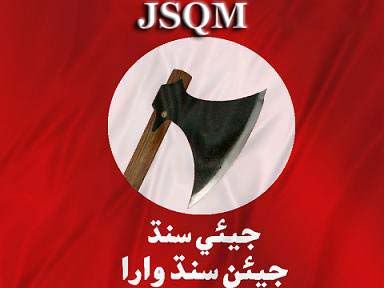
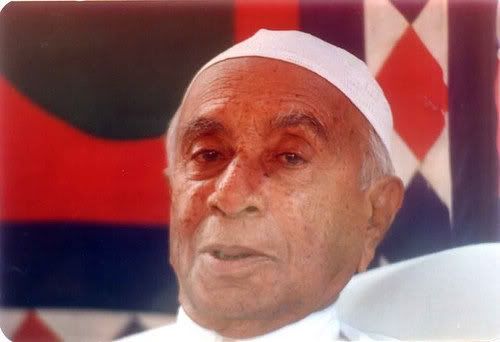
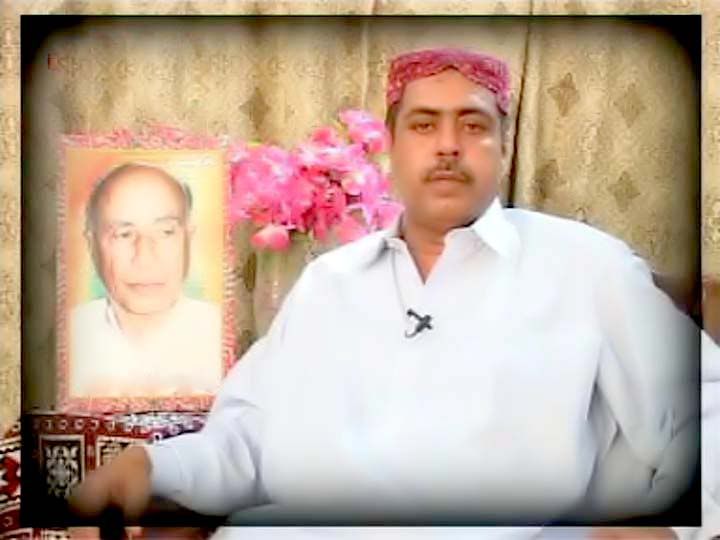
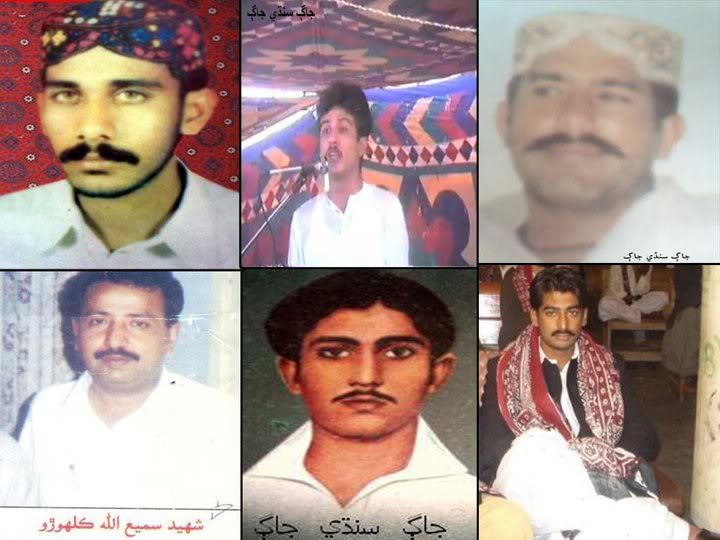
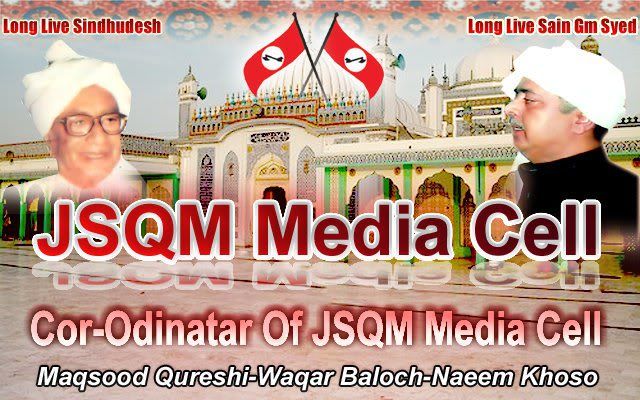



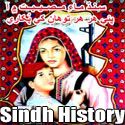





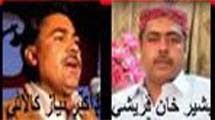
Currently have 0 comments: